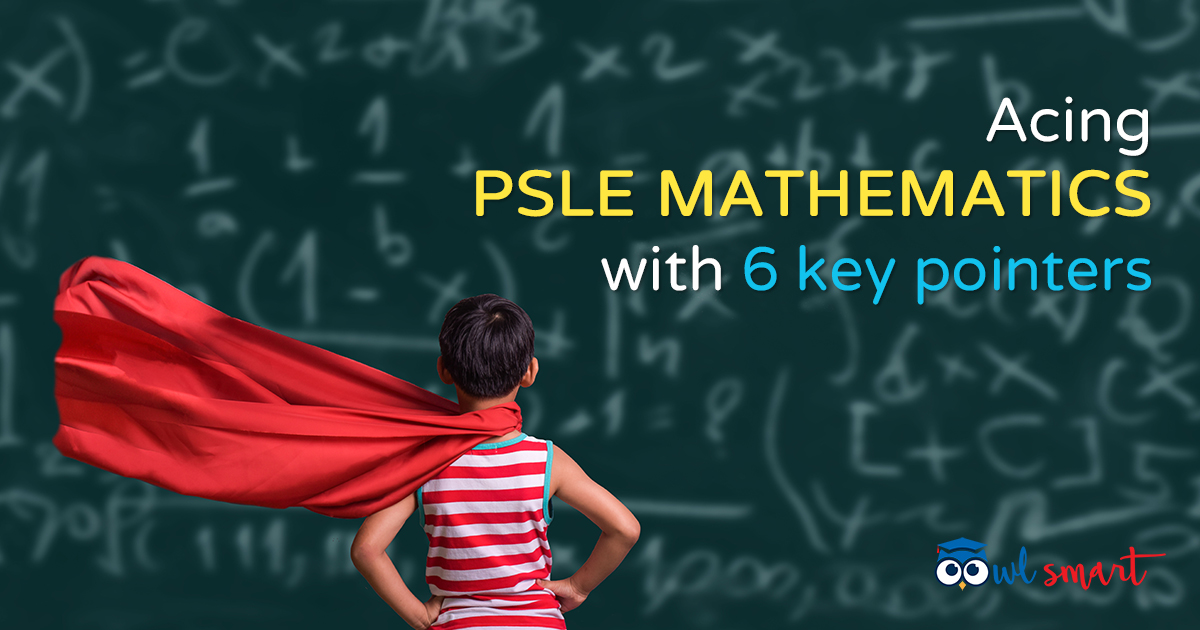
“How can I help my child to improve in Math?” Sounds familiar?
This is the most common question asked by parents when they meet their child’s Math teacher. Over the years, I have gathered that the following pointers, though simple, are essential ways to help a child cope with Math.
-
Practise Math papers within allocated duration on a regular basis.
-
If a pupil has enough practices completing a Math paper under the usual simulated examination conditions, he/she will be more confident when sitting for the actual PSLE Math paper.
| |
2. Try not to use the calculator too much in daily practices to improve on speed and accuracy.
3. Learn different methods in solving problem sums.
-
Different method can be efficient in solving different types of questions.
-
Sometimes, one method which is easy to apply in solving a question might not be easy to apply in another question.
4. Familiarise with PSLE Math syllabus and strategise!
| Category (1) | Numbers | Greater weighting Topics are interrelated (Dealing with parts and whole) |
| Topics | Whole Numbers | |
| Fractions | ||
| Decimals | ||
| Category (2) | Ratio and Percentage | |
| Topics | Ratio | |
| Percentage | ||
| Category (3) | Measurement | Greater weighting
|
| Topics | Length, Mass, Time, Money | |
| Volume of Liquids and Solids | ||
| Area and Perimeter | ||
| Category (4) | Statistics | Medium weighting
|
| Topics | Tables and Graphs (Line, Bar, Picture) | |
| Average | ||
| Pie Chart | ||
| Category (5) | Geometry | Greater Weighting
|
| Topics | Symmetry, Parallel and Perpendicular Lines | |
| Nets and Solid Figures | ||
| Angles/Angles of Geometric Figures | ||
| Category (6) | Algebra | Smaller weighting |
| Category (7) | Rate, Speed | Smaller weighting |
Notes:
-
Whole Numbers, Decimals, Fractions, Ratio and Percentage – These are topics with the greater weighting of marks. They are interrelated and strategies learnt can usually be applied across different topics (Important!).
-
It is relatively easy to score in Statistics in comparison with other categories.
- Geometry is a major category and should be focused on. Questions are easier to solve since they do not involve many words as in problem sums.
-
Algebra is a concept that is often useful in solving complicated problem sums.
-
Speed is a difficult topic that many pupils have problems with. It is recommended that more emphasis should be placed on other major categories for the weaker pupils.
5. Familiarise yourself with the common strategies used.
-
Practise questions that are categorised according to skills/strategies for familiarity with question types. The database in OwlSmart has a huge collection of more than 8000(and increasing) questions that are categorised according to the level of difficulty, topics and skills/strategies.
| |
6. Quality over Quantity
-
Go through your mistakes and understand what went wrong. It does not help doing a lot of practice papers from other schools without going through your corrections.
Note: In the next article for Math, we will share on the steps in tackling Math word problem sums using the STAR approach.
About the Author
Teacher Zen has over a decade of experience in teaching upper primary Math and Science in local schools. He has a post-graduate diploma in education from NIE and has a wealth of experience in marking PSLE Science and Math papers. When not teaching or working on OwlSmart, he enjoys watching soccer and supports Liverpool football team.



